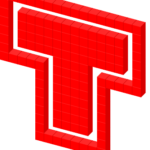Business activities in Nigeria’s private sector contracted for the first time since November 2023 in July mainly due to a reduction in new orders and high prices limiting demand.
The Stanbic Purchasing Managers’ Index (PMI) for July declined to 49.2, indicating a slowdown in business activities in the beginning month of the second half of the year.
The report indicated that the recent decline in the private sector’s health was mainly due to the first reductions in output and new orders since November of the previous year.
However, the rates of decline were modest. Anecdotal evidence pointed to the negative impact of sharp price increases on customer demand, with clients often unwilling or unable to commit to new projects.
The report states, “The headline PMI posted 49.2 in July, down from 50.1 in June and below the 50.0 no-change mark for the first time in eight months. The index signalled a slight deterioration in business conditions as the second half of the year got underway.”
According to the report, among the four sectors covered in the report, only the manufacturing sector recorded an increase in business activities.
The report indicated that selling prices continued to increase sharply at the start of the third quarter as companies passed higher input costs to their customers. This occurred despite the rate of inflation easing to its slowest since May 2023, with some companies lowering charges to secure sales.
Further increases in purchase prices and staff costs were observed in July, with purchase price inflation reaching a four-month high due to currency weakness and higher raw material costs. Employee expenses rose in line with June, as companies helped workers with higher living costs, especially transportation.
The renewed decline in output coincided with a drop in business confidence, reaching its lowest since the survey began. Despite this, firms still expected output to rise over the coming year due to business expansion plans.
Companies reduced purchasing activity, leading to shorter suppliers’ delivery times due to reduced demand and prompt payments. Meanwhile, stocks of inputs increased.
The Head of Equities Research at Stanbic IBTC West Africa, Muyiwa Oni commenting on the report stated that there might be some respite for Nigerian consumers in the second half of the year as the harvest season beginning in September coupled with adjustments to the effects of fuel subsidy and exchange rate depreciations.
He said, “On a year-on-year basis, headline inflation may have peaked in June, with moderation expected in H2:24 as the year-on-year effects of PMS subsidy removal (which induced higher fuel prices) and significant currency depreciation (which accompanied the FX unification) fade. This, in addition to the commencement of the primary harvest season in September, is likely to provide some respite for consumers, thereby likely supporting a slight improvement in domestic economic activities in H2:24.”

